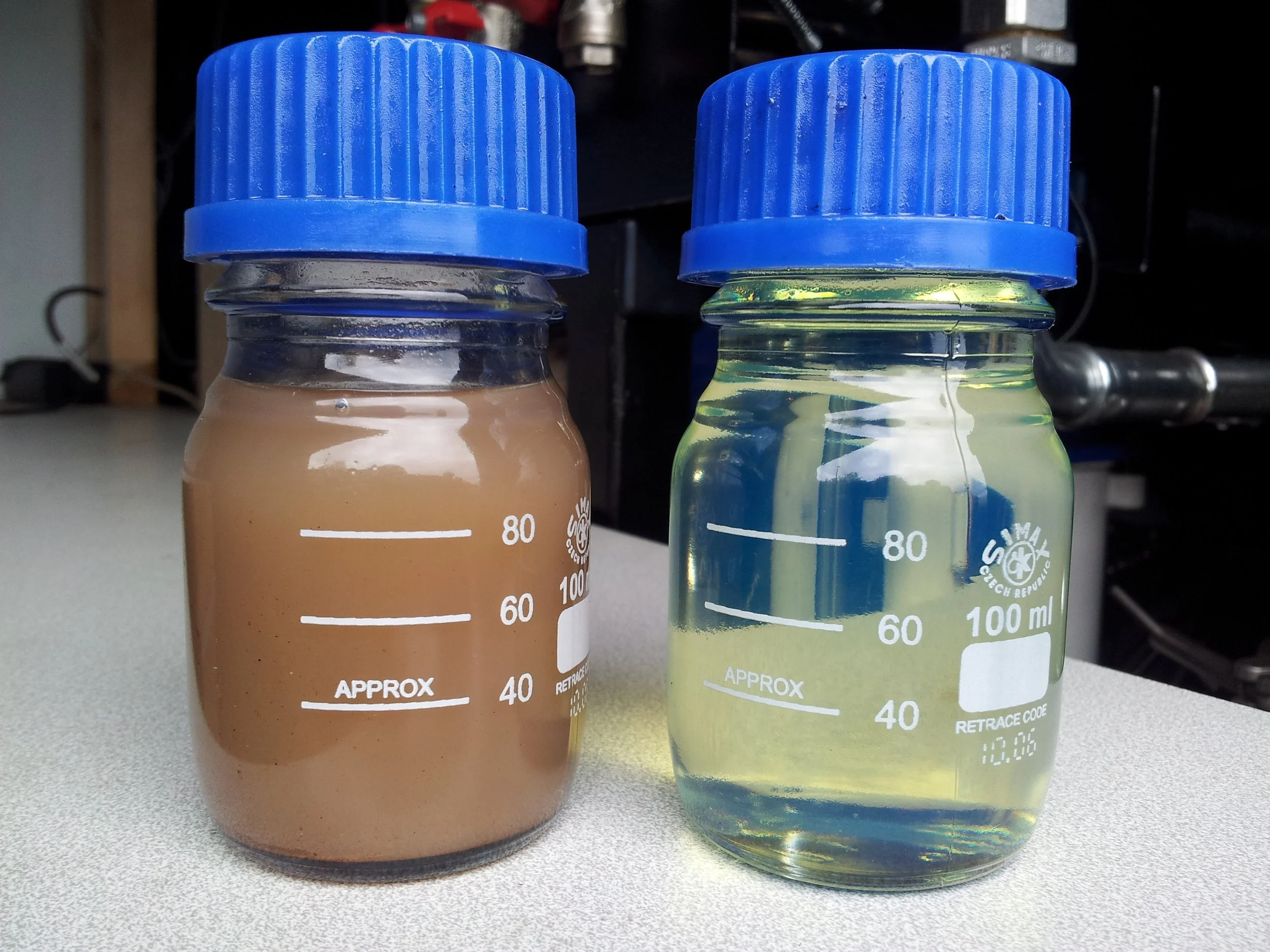
Fuel sampling & testing for optimal quality and efficiency
Through regular fuel sampling and fuel testing, our expert team detects contamination early and implements the necessary corrections to safeguard the longevity and performance of your fuel storage systems.
Fuel sampling & testing services at OTS
Maintaining fuel quality isn't just a matter of efficiency; it’s crucial to the lifespan and performance of your equipment. Without routine fuel testing and sampling, fuel can degrade or become contaminated with water, bacteria, and other substances, potentially leading to costly equipment damage and downtime. (Read our article on The Challenges of Storing Diesel here)
Our Fuel Sampling & Testing services help to detect these issues early, enabling preventative measures and necessary corrections before these problems escalate. This proactive approach extends the life of your fuel storage and dispensing systems, minimises disruptions, and maximises operational efficiency.
Most operators benefit from quarterly or biannual testing depending on usage and storage conditions.
Our Fuel Testing & Sampling Procedures
Our team strictly adheres to the protocols defined in BS 5410-3:2023, which outlines best practices for the design, installation, commissioning, and maintenance of equipment consuming liquid fuels. This applies to a broad range of industries, from construction and logistics to data centres and the military.
We follow the recommendations and best practice guidance set out in the Worldwide Fuel Charter. Our fuel testing procedures focus on detecting entrained/suspended water, particulates, bacteria, sulphur, and FAME (Fatty Acid Methyl Ester), which can indicate potential fuel degradation.
Fuel samples are taken from the bottom and middle of the tank and benchmarked against British Standard BSEN590. Our comprehensive tests look for bacterial, water, and particulate contamination, as well as other indicators of fuel degradation.
Special care is taken with biodiesel storage. Fuel-oil companies typically recommend a three-month storage limit, after which active treatment procedures should be implemented. This is a critical concern for systems providing backup for critical services, but it's equally significant for any setup that uses large fuel storage tanks (over 200L) as routine maintenance is vital to prevent degradation and ensure efficiency.
Diesel Bug
What is Diesel Bug?
Diesel bug refers to microbial contamination, including bacteria, fungi, and yeast that thrive at the water-fuel interface in diesel storage systems. Over time, these microbes can form a sludge, compromising fuel integrity and leading to clogged filters, corroded tanks, and reduced engine efficiency.
Testing for Diesel Bug
At OTS Group, our advanced fuel sampling and fuel testing services incorporate specialised tests to detect and identify microbial contamination. By employing state-of-the-art equipment and adhering to industry-standard practices, we ensure an accurate diagnosis of Diesel Bug.
What happens if contamination is found?
If fuel testing highlights contamination, OTS provides integrated solutions such as fuel polishing, tank cleaning, or safe uplift and disposal to restore compliance and protect your operations.

Book your fuel sampling & testing today
Safeguard your operations with our fuel testing and sampling services, designed to keep your systems safe, efficient, and compliant. Contact us today to discover how we can support the longevity and performance of your operations.


